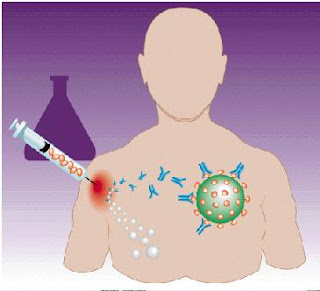Vaccination is a cheap and effective way of preventing infections by viruses. Use of vaccines has resulted in a dramatic decline in morbidity and mortality rate associated with viral infections such as measles. Moreover, smallpox infections have been eradicated. Vaccines are available to prevent over thirteen viral infections of humans, and more are used to prevent viral infections of animals. Live vaccines contain weakened forms of the virus that cause the disease. Such viruses are called attenuated. Live vaccines can be dangerous when given to people with a weak immunity, because the weakened virus can cause the original disease. Hepatitis B vaccine is an example of this type of vaccine. Subunit vaccines are safe for weak immunity patients because they cannot cause the disease.

Antiviral drugs
Antiviral drugs are often nucleoside analogues, which viruses incorporate into their genomes during replication. The life-cycle of the virus is then halted because the newly synthesised DNA is inactive. This is because these analogues lack the hydroxyl groups, which along with phosphorus atoms, link together to form the strong "backbone" of the DNA molecule. This is called DNA chain termination. An example of nucleoside analogues is lamivudine for HIV and Hepatitis B virus infections.
Hepatitis C is caused by an RNA virus. In 80% of people infected, the disease is chronic, and without treatment, they are infected for the remainder of their lives. However, there is now an effective treatment that uses the nucleoside analogue drug ribavirin combined with interferon. The treatment of chronic carriers of the hepatitis B virus by using a similar strategy using lamivudine has been developed

No comments:
Post a Comment